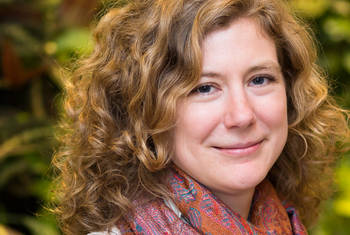Ludger Woessmann How is Student Learning Affected by Different Types of Testing?
Ludger Woessmann is Professor of Economics at Ludwig Maximilian University of Munich and Director of the ifo Centre for the Economics of Education. Having previously worked at the Kiel Institute for World Economics, Woessmann has been a visiting scholar at both Harvard and Stanford Universities. Central to his research are the links between education and economic prosperity and the interconnections between school systems, efficiency, and equality. Having received the IEA Bruce H. Choppin Memorial Award (2005) for his doctoral thesis, Woessmann has gone on to win the German Economic Association’s Hermann Heinrich Gossen (2014) and Gustav Stolper (2017) awards.
Area of Research
Economics of Education, Economic Growth, Economic History, Economics of Religion, Labor Economics, Development Economics, Economic Policy, Policy Evaluation, Political Economy, Public Opinion Research
since 2006
Professor of Economics, esp. Economics of Education
Ludwig Maximilian University Munich (Ludwig-Maximilians-Universität München)
Department of Economics
since 2004
Director
ifo Institute
ifo Center for the Economics of Education
1999-2003
Economist
Kiel Institute for World Economics (Kiel Institut für Weltwirtschaft, IfW)
2006
Habilitation in Economics
Technical University of Munich (Technische Universität München)
2001
Ph.D. in Economics (Dr. sc. pol.)
Kiel University (Christian Albrechts Universität zu Kiel)
1999
Advanced Studies Certificate (International Economic Policy Research)
Kiel University (Christian Albrechts Universität zu Kiel)
Kiel Institute for World Economics (Kiel Institut für Weltwirtschaft, IfW)
1998
MA, Economics (Diplom, VWL)
Philipps-Universität Marburg
1996
Diploma, Economics
University of Kent at Canterbury
- German National Academy of Sciences Leopoldina (since 2013)
- German Academy of Science and Engineering, Acatech (since 2012)
- Academic Advisory Council, German Federal Ministry of Economics (since 2009)
- International Academy of Education (since 2007)
- Research Committee on Economics of Education, German Economic Association (Bildungsökonomischer Ausschuss des Vereins für Socialpolitik) (since 2004)
- Committee Economics of Education, German Economic Association (2013-2017)
Prizes
- Gustav Stolper Award of the German Economic Association (2017)
- Hermann Heinrich Gossen Award, German Economic Association (2014)
- IEA Bruce H. Choppin Memorial Award, International Association for the Evaluation of Educational Achievement (IEA) (2005)
- Young Economist Award, European Economic Association (2003)
- Bernhard Harms Prize for Young Economists of the Kiel Institute for World Economics (2002)
Fellowships
- W. Glenn Campbell and Rita Ricardo-Campbell National Fellow, Hoover Institution, Stanford University (2010)
- “Educational Choices, Market Design, and Student Outcomes” (with Dorothea Kübler, WZB) funded as part of Collaborative Research Center CRC TRR 190 “Rationality and Competition: The Economic Performance of Individuals and Firms” by the German Science Foundation (DFG) (2017-2020)
- Coordinator of the “European Expert Network on the Economics of Education (EENEE)” funded by the European Commission, DG Education and Culture (2003-2020)
- “Evaluation of the Effectiveness of a 1:1 Mentoring Program” funded by the Commissioner of the Federal Government for Migration, Refugees and Integration and a consortium of non-profit foundations (2015-2020)
- “How Does Reducing the Intensity of Tracking Affect Student Achievement and Equity? Evidence from German State Reforms” funded by the German Science Foundation (DFG) (2017-2019)
- “Accountability and School Institutions in Cross-Country Perspective” funded by the Smith Richardson Foundation (2016-2018)
- Contribution to “Acquisition and Utilization of Adult Skills – A Network for Analyzing, Developing and Disseminating PIAAC” funded by the Leibniz Association (2015-2018)
- “Teacher Effectiveness and its Determinants in Germany: An In-Depth Analysis” funded by the German Science Foundation (DFG) (2015-2018)
- etc.
Student testing is increasingly popular around the world. Though it aids accountability, people have begun to wonder about the consequences of too much testing. In this video, LUDGER WOESSMANN analyses the effects on student learning of different types of testing. With PISA (the Programme for International Student Assessment) providing data on students, schools and testing regimes in 59 participating countries, the study identifies striking variations in effectiveness between different forms of testing. While the introduction of standardized comparative testing is observed to lead to significant improvements in student learning, internal school tests, whether used to measure the performance of students or teachers, are shown to have little discernible effect. As clear links have been identified between a nation’s performance in studies like PISA and its prospects for economic growth, Woessmann’s work has vital relevance for governments and other stakeholders in educational policy worldwide.
LT Video Publication DOI: https://doi.org/10.21036/LTPUB10666








